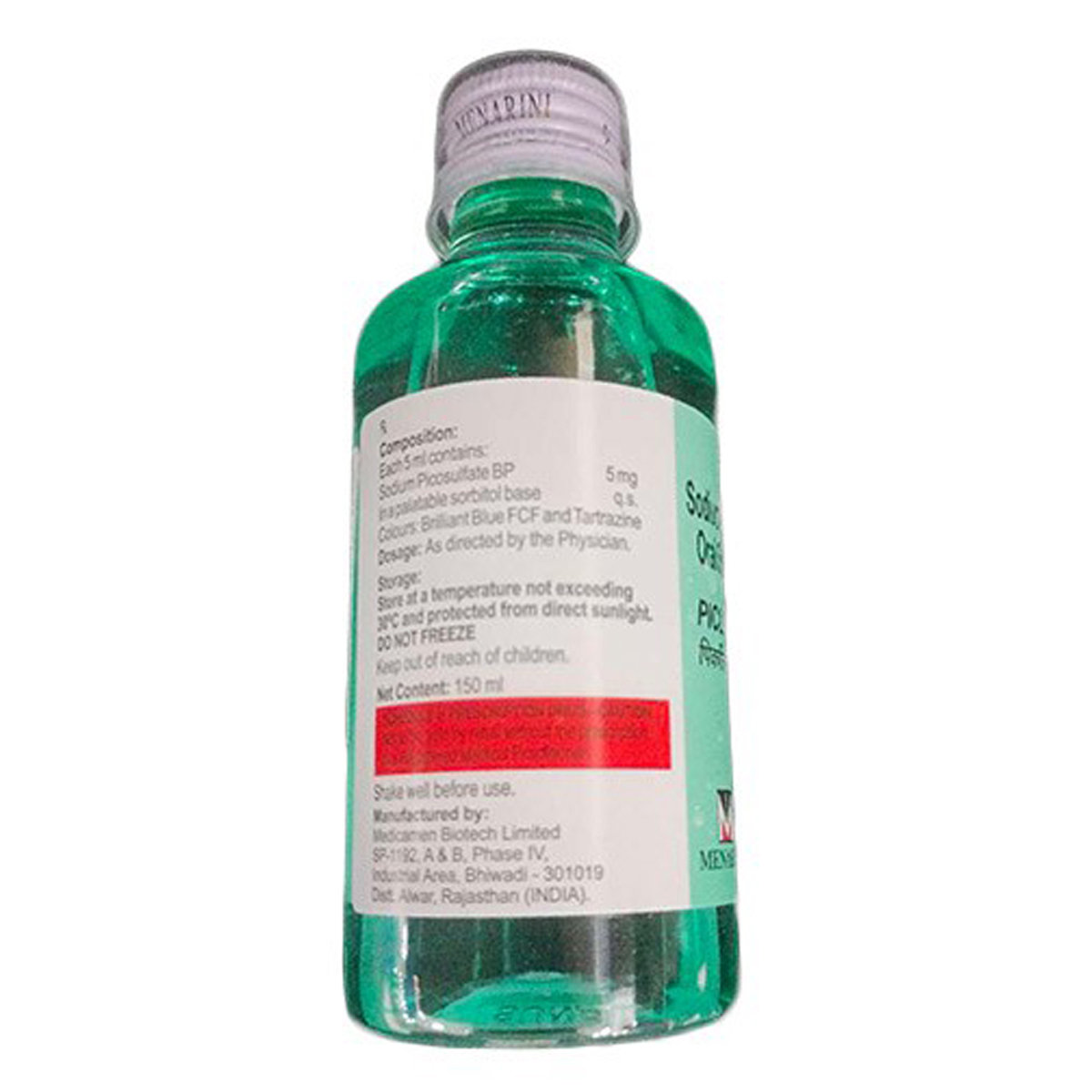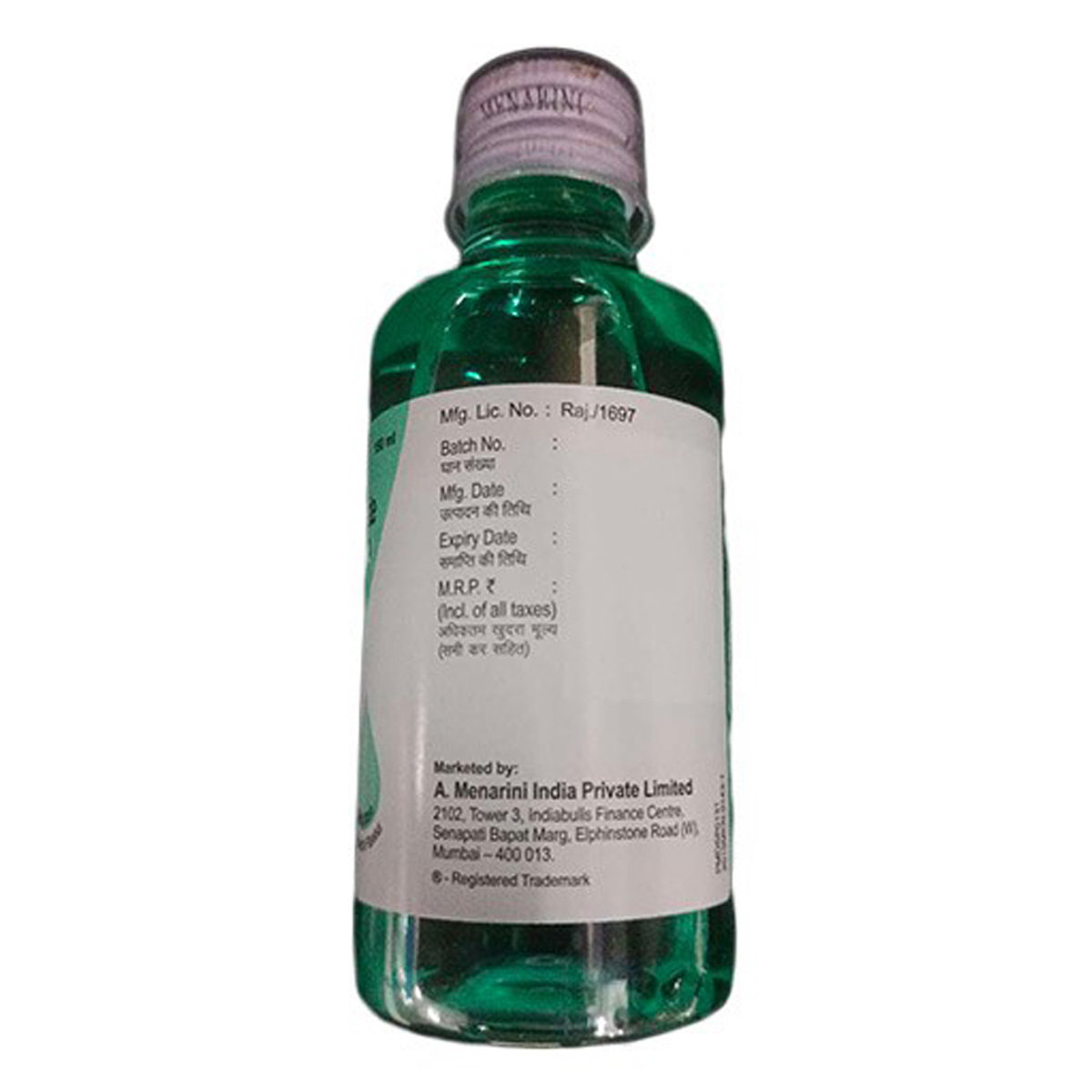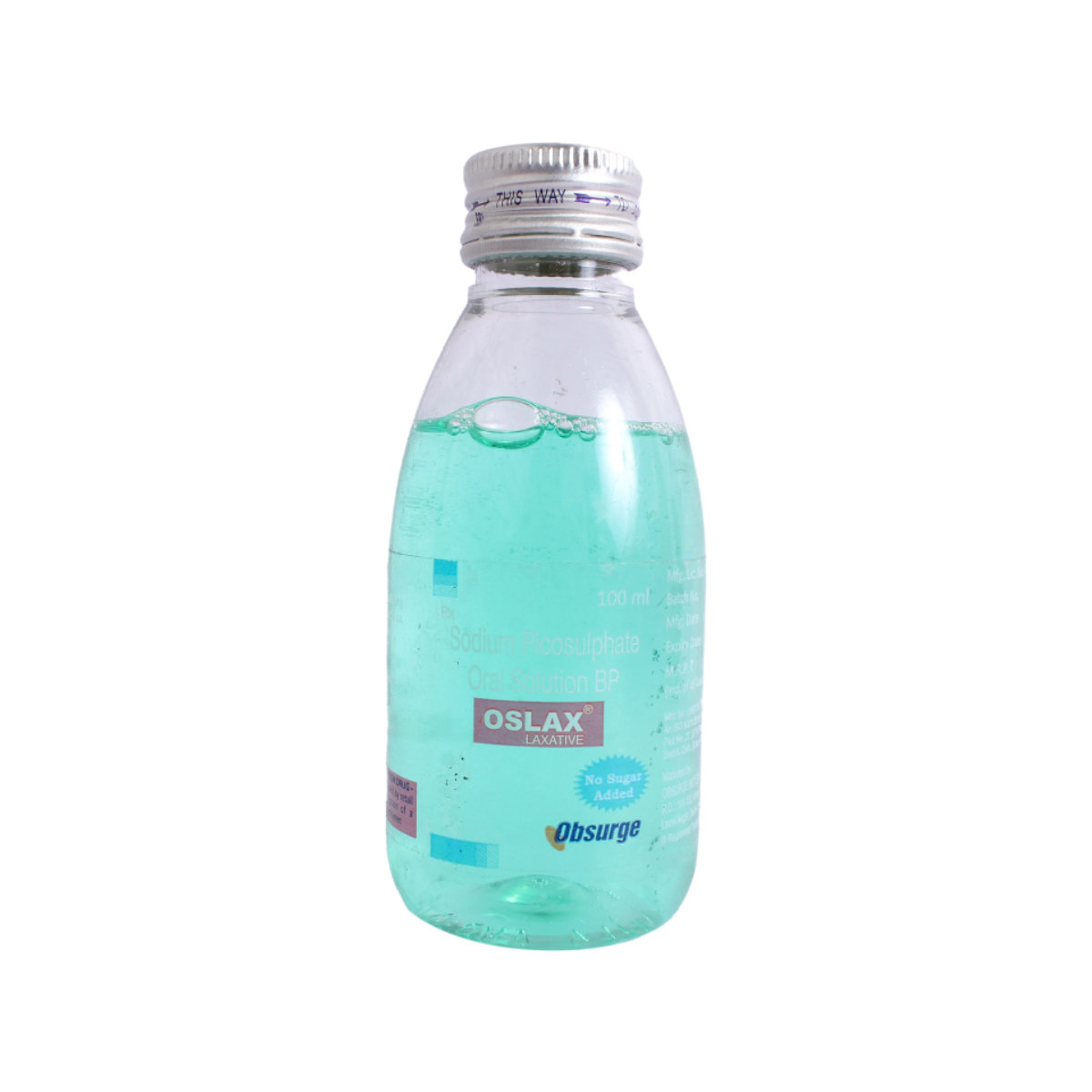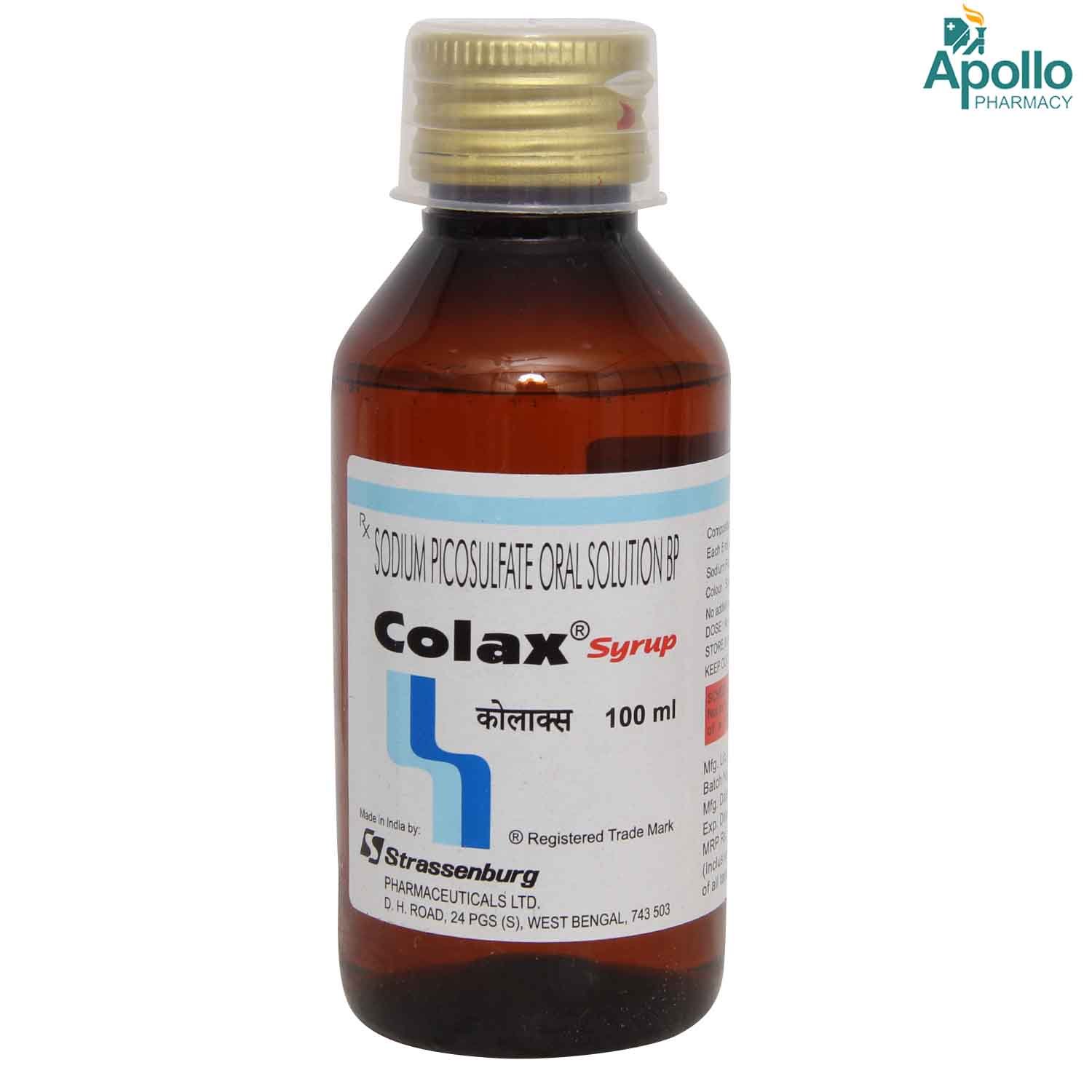Piclin Syrup 100 ml
MRP ₹224.5
(Inclusive of all Taxes)
₹33.7 Cashback (15%)
Selected Pack Size:100 ml
100 ml ₹202.1
(₹2.02 per ml)
In Stock
150 ml ₹202.1
(₹1.35 per ml)
In Stock
Provide Delivery Location
Online payment accepted
 Prescription drug
Prescription drugWhats That
Composition :
Manufacturer/Marketer :
Consume Type :
Expires on or after :
Return Policy :
About Piclin Syrup
Piclin Syrup belongs to the group of medicines called laxatives used to treat constipation associated with piles, anal fissure, hernia, cardiovascular disorder, endoscopy, bowel clearance before radioscopy, pre/post-operative conditions, elderly and bed-ridden patients. Constipation refers to infrequent bowel movements in which the stools are often dry, painful, and hard to pass.
Piclin Syrup consists of 'Sodium picosulphate' that prevents the absorption of water in the colon/intestine, thereby stimulating the propulsive (pushing forward) activity, which in turn promotes accumulation of water providing stool can pass with ease. Thus, it relieves constipation.
You can take Piclin Syrup with or without food. You are advised to take Piclin Syrup for as long as your doctor has prescribed it for you, depending on your medical condition. You may experience certain common side-effects such as diarrhoea, abdominal discomfort, pain, or cramps in some cases. Most of these side-effects do not require medical attention and will resolve gradually over time. However, you are advised to talk to your doctor if you experience these side-effects persistently.
To treat your condition effectually, continue taking Piclin Syrup for as long as your doctor has prescribed. Drink plenty of fluids (at least 6-8 glasses) while taking Piclin Syrup to prevent dehydration. Do not take Piclin Syrup for more than a week as it might cause dependency on Piclin Syrup for a bowel movement. Talk to your doctor if you notice any sudden changes in bowel habits that persist for over 2 weeks. Consult your doctor before taking Piclin Syrup if you are pregnant or breastfeeding. Piclin Syrup should not be given to children as safety and effectiveness have not been established.
Uses of Piclin Syrup
Directions for Use
Key Benefits
Piclin Syrup belongs to the group of medicines called laxatives used to treat constipation associated with piles, anal fissure, hernia, cardiovascular disorder, endoscopy, bowel clearance before radioscopy, pre/post-operative conditions, elderly and bed-ridden patients. Piclin Syrup consists of Sodium picosulphate that is a stimulant laxative, prevents the absorption of water in the colonic lumen and stimulates the colon's propulsive activity, thereby promoting water accumulation
Storage
Drug Warnings
Do not take Piclin Syrup if you are allergic to any of its contents; if you have/had acute abdominal surgery, intestinal obstruction, or undiagnosed abdominal pain. Drink plenty of fluids (at least 6-8 glasses) while taking Piclin Syrup . Do not take Piclin Syrup for more than a week as it might cause dependency on Piclin Syrup for a bowel movement. Talk to your doctor if you notice any sudden changes in bowel habits that persist for over 2 weeks. Consult your doctor before taking Piclin Syrup if you are pregnant or breastfeeding. Piclin Syrup should not be given to children as safety and effectiveness have not been established.
Drug-Drug Interactions
Drug-Drug Interactions
Login/Sign Up
Drug-Food Interactions
Drug-Food Interactions
Login/Sign Up
Diet & Lifestyle Advise
- Try maintaining a balanced diet that includes fresh fruits and vegetables.
- Stay hydrated, drink enough water and fluids.
- Exercise regularly, and stay fit.
- Get enough sleep.
- Try making time to empty your bowels whenever the body tells you to.
- Eat food rich in fibre such as whole-wheat bread, oatmeal, flaxseed, nuts, beans, lentils, fruits (berries, apples, oranges, bananas, pears, figs), and vegetables (broccoli, spinach, sweet potatoes, avocados).
Side Effects of Piclin Syrup
- Diarrhoea
- Abdominal discomfort, pain, or cramps
Habit Forming
Therapeutic Class
All Substitutes & Brand Comparisons
RX
Out of StockAtwork 5mg Syrup
₹59
(₹0.53/ 1ml)
73% CHEAPERRX
Out of StockLaxphate 5mg Syrup
₹68
(₹0.61/ 1ml)
69% CHEAPERRX
Out of StockLaxbase 5mg Syrup
₹69
(₹0.62/ 1ml)
69% CHEAPER
Drug-Diseases Interactions
Drug-Diseases Interactions
Login/Sign Up
FAQs
Drug-Drug Interactions Checker List
- TETRACYCLINE
- FUROSEMIDE
- PREDNISOLONE
Special Advise
Include more fiber in your diet to avoid constipation and most importantly never ignore the urge to have a bowel movement.
Disease/Condition Glossary
Constipation: It refers to infrequent bowel movements. The stools are often dry, painful, and hard to pass. Constipation is a condition in which the person has fewer than three bowel movements in a week. However, bowel patterns may vary from person to person. Symptoms include bloating, abdominal pain, and feeling as if the bowel movement is incomplete. Constipation occurs when the normal muscle contractions in the large intestine slow down, which causes the incomplete elimination of the bowel from the body. Constipation could be associated with a sudden change of diet, a diet with less fibre, not drinking enough liquids, lack of exercise, loss of tone of the bowel muscles in older people, or staying in bed for a longer duration.

Have a query?
Alcohol
Safe if prescribed
It is not known if alcohol interacts with Piclin Syrup . Please consult your doctor if you have any concerns regarding this.
Pregnancy
Consult your doctor
Please consult your doctor before taking Piclin Syrup if you are pregnant; your doctor will prescribe you Piclin Syrup if the benefits outweigh the risks.
Breast Feeding
Consult your doctor
Consult your doctor before taking Piclin Syrup if you are breastfeeding. Your doctor will decide if Piclin Syrup can be taken by breastfeeding mothers or not.
Driving
Safe if prescribed
Piclin Syrup has negligible influence on your ability to drive.
Liver
Consult your doctor
Please consult your doctor before taking Piclin Syrup if you have liver impairment/liver disease.
Kidney
Consult your doctor
Please consult your doctor before taking Piclin Syrup if you have kidney impairment/kidney disease.
Children
Safe if prescribed
Piclin Syrup should not be given to children as safety and effectiveness have not been established.














